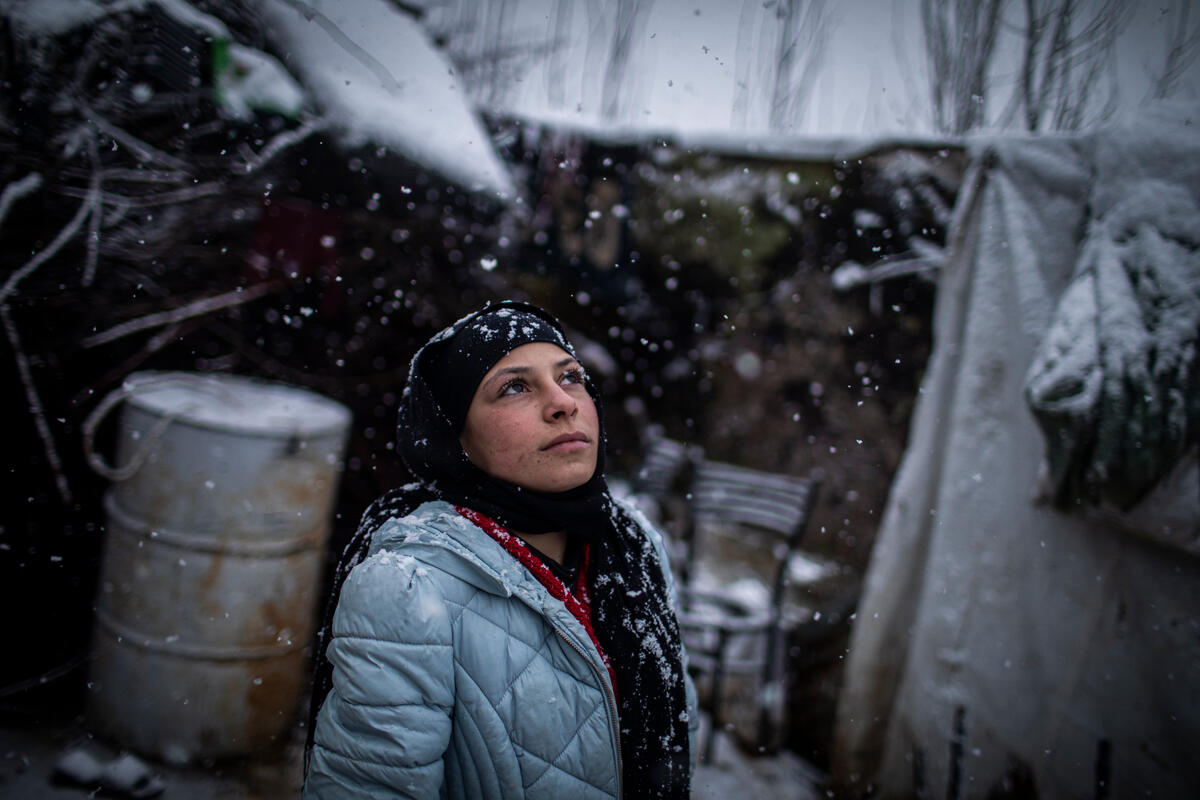Syrian refugee aid plan launched as births in exile hit 1 million
Syrian refugee aid plan launched as births in exile hit 1 million

AMMAN, Jordan – A typically boisterous two-year-old with distinctive blonde hair and a cheeky grin, Yousef fidgets incessantly while his parents wait at a UNHCR registration centre in Jordan’s capital Amman. Keeping a protective eye on his son, Baraa tries to process the fact that Yousef is now one of a million young Syrian refugees born in exile since the start of the crisis in 2011.
“This is a scary number, because it means one million with no real home,” the 29-year-old refugee from Hama in Syria said. “At least I have my memories of Syria. Yousef has never seen his country – he doesn’t know his home.”
With the conflict well into its eighth year, there are currently more than 5.6 million Syrian refugees registered in the main host countries in the region: Turkey, Lebanon, Jordan, Egypt and Iraq. Many of these one million refugees born in exile face a life of poverty and uncertainty, where child labour and early marriage occur, and even their education is not guaranteed.
Beyond his monthly struggles to pay the food bills and rent, Baraa’s main concern is for Yousef’s future and that of his unborn sister, who is due within weeks. “My biggest worry is their education – how can a child grow and develop in this situation?” he asks. “This will be our last baby, because life is too uncertain and expensive.”
"It is critical that the international community continues to... help shoulder this massive burden."
In order to continue meeting the needs of Syrian refugees like Baraa and the countries hosting them, on Tuesday UNHCR and UNDP together with some 270 NGO and humanitarian partners launched the 2019-2020 Regional Refugee and Resilience Plan (3RP).
The US$5.5 billion plan will provide assistance to more than nine million people, including Syrian refugees and up to 3.9 million vulnerable members of the host communities where the refugees currently live. Since its inception in 2015, the 3RP has channeled US$12 billion in funding to address the impacts of the refugee crisis.
Future support will include getting more refugee children into some form of education, with 35 per cent of young Syrians in exile still currently out of school. The funding will also be used to provide refugees with targeted cash assistance, offer protection and health services, and enhance economic opportunities, especially for women.
Recognizing the years of generous hospitality offered by host countries in the region, the plan also seeks to help them shoulder the socio-economic impact of welcoming such large numbers of people, primarily through supporting the work of local institutions and municipalities.
"If we lost this cash assistance, I don't know what would happen to us."
“It is critical that the international community continues to recognize the plight of Syrian refugees and provides vital support to host governments and 3RP partners to help shoulder this massive burden, until refugees can return home in safety and dignity,” said Amin Awad, UNHCR Director for the Middle East and North Africa Bureau and Regional Refugee Coordinator for Syria and Iraq.
Ahmad, a 51-year-old former soap factory owner from Aleppo, said he and his family would not have been able to survive in Jordan without the 140 Jordanian dinar (US$200) monthly cash assistance they have received since mid-2012.
“I was active and successful in Syria, with my own factory, a large home and four apartments,” he explained. “Then I found myself here living as a refugee, with no money and no status. The assistance I received helped me psychologically as well as financially.”
As the father of two teenage daughters, Ahmad said he is still too concerned by the security situation in Aleppo to think of returning yet. “We have no option at the moment other than staying in Jordan and relying on the support we receive. If we lost this cash assistance, I don’t know what would happen to us.”









